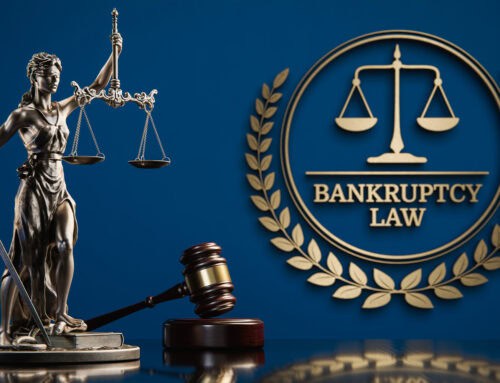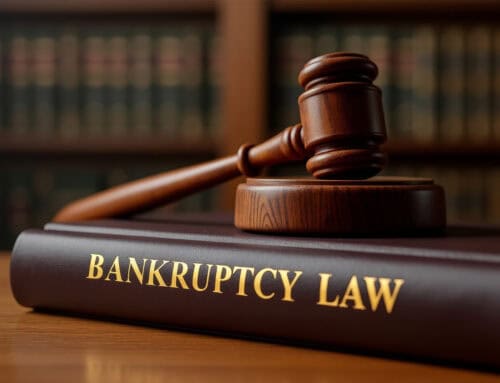Understanding the Role of Bankruptcy Trustees: What Do They Actually Do?
A bankruptcy trustee is a neutral party appointed by the court to oversee your bankruptcy case. Their primary duty is to manage the bankruptcy estate—essentially, the debtor’s assets—and ensure that the distribution of funds to creditors is carried out fairly and according to the law. Trustees play a pivotal role in maintaining the integrity of the process by balancing the interests of both the debtor and the creditors.
Key Responsibilities
- Asset Evaluation and Liquidation
In Chapter 7 bankruptcy cases, the trustee is responsible for identifying and collecting non-exempt assets that can be liquidated. These funds are then distributed to creditors. It’s important to note that many personal assets are protected by exemptions, especially under California law, but any non-exempt property could potentially be sold to satisfy your debts. - Administration of the Bankruptcy Estate
The trustee oversees the entire bankruptcy estate. This includes reviewing the debtor’s financial statements, ensuring that all required documents have been filed accurately, and monitoring any actions taken by the debtor during the process. This thorough oversight helps prevent fraud and ensures that all parties are treated fairly. - Objecting to and Avoiding Fraudulent Transfers
Trustees have the authority to investigate and reverse any asset transfers made before filing that could be deemed fraudulent. Their goal is to ensure that creditors receive as much repayment as possible, and any attempt to hide or improperly dispose of assets can be challenged. - Distribution of Funds
After liquidating non-exempt assets, the trustee distributes the proceeds among creditors based on a priority system set by bankruptcy law. This ensures that secured creditors, priority claims (like certain taxes or wages), and unsecured creditors are paid in an orderly fashion. - Monitoring the Debtor’s Conduct
Trustees also have an ongoing duty to monitor the debtor’s actions during the bankruptcy process. This oversight includes ensuring that the debtor complies with court orders and that no additional debt is incurred without proper disclosure.
The Role of the Trustee in Different Bankruptcy Chapters
The role of the bankruptcy trustee can vary depending on whether you file under Chapter 7 or Chapter 13.
Chapter 7 Bankruptcy
In Chapter 7 cases, often referred to as liquidation bankruptcy, the trustee’s responsibilities are more concentrated on the collection and liquidation of non-exempt assets. Since Chapter 7 aims to discharge most of your debts quickly, the trustee’s effective management of your assets is critical to ensure creditors receive their due share. In many cases, however, if you have limited or entirely exempt assets under California’s exemption rules, the trustee’s role may involve less direct intervention.
Chapter 13 Bankruptcy
Chapter 13 bankruptcy, commonly known as reorganization bankruptcy, allows you to keep your assets while repaying creditors through a court-approved plan over three to five years. Here, the trustee’s role shifts to administering your repayment plan. They review your financial documents, verify your income and expenses, and ensure that the payments are made to the creditors on time. Their oversight helps maintain the credibility of your plan and reassures creditors that they will eventually receive compensation.
Why Trustees Are Integral to the Bankruptcy Process
Bankruptcy trustees serve as an impartial overseer, and their work is designed to benefit all parties involved. Their main functions include:
- Ensuring Fairness: By overseeing asset liquidation and distribution, trustees help prevent any party from receiving preferential treatment. This fairness is critical to maintaining the balance between the debtor’s right to a fresh start and the creditors’ right to repayment.
- Preventing Abuse: Trustees have the power to identify and reverse fraudulent or improper transactions. This is particularly important in preventing abuse of the bankruptcy system, such as hiding assets or incurring unmanageable debt just before filing.
- Simplifying the Process: For many debtors, the bankruptcy process can be overwhelming. Trustees help streamline the process by handling administrative tasks, which allows you to focus on rebuilding your financial future.
- Protecting Your Rights: While the trustee’s role may seem adversarial, they also protect your rights as a debtor. By enforcing the rules fairly, they ensure that you receive the legal protections afforded by bankruptcy laws.
California-Specific Considerations
California’s bankruptcy system incorporates both federal and state exemptions, which can significantly impact the trustee’s actions. California provides relatively generous exemptions for personal property, home equity, and even retirement accounts. This means that in many cases, even if a trustee is tasked with liquidating assets, a substantial portion of your assets may be protected under state law.
For instance, if you own a home, California’s homestead exemption can protect a certain amount of equity, potentially allowing you to keep your residence even if other assets are liquidated. Understanding these protections is vital when assessing how a trustee might handle your case.
Additionally, the vibrant and diverse economy of California means that many debtors might have complex financial portfolios. Trustees in California are well-versed in navigating these complexities, ensuring that both debtors and creditors are treated fairly within the framework of the law.
The Importance of Legal Guidance
Navigating bankruptcy proceedings can be complex, especially when dealing with the intricate role of a trustee. An experienced bankruptcy attorney can help you understand your rights and obligations, work with you to gather all necessary documents, and represent your interests during trustee meetings or hearings.
At the Law Offices of Brent D. George, we specialize in guiding Californians through the bankruptcy process with personalized attention and expert advice. Our goal is to ensure that you fully understand every step of your case—from the role of the trustee to the final discharge of debts—while protecting your rights and assets. By working closely with you, we aim to make this challenging process as smooth as possible, ensuring you receive the fresh start you deserve.
Moving Forward with Confidence
Understanding the role of bankruptcy trustees is a critical part of the bankruptcy process. Their responsibilities—from asset evaluation and liquidation in Chapter 7 cases to overseeing repayment plans in Chapter 13—ensure that the process is handled fairly and efficiently. While the trustee acts as a watchdog to protect creditors’ interests, their role also safeguards your rights as a debtor.
If you’re considering bankruptcy or are currently navigating the process and have questions about the trustee’s role, it’s important to have a trusted legal partner by your side. The Law Offices of Brent D. George are here to help. Contact us today for a free consultation and gain the guidance you need to move forward confidently toward a fresh financial start.
Disclaimer: This article is intended for informational purposes only and does not constitute legal advice. For personalized assistance, please contact our office at (805)494-8400.






